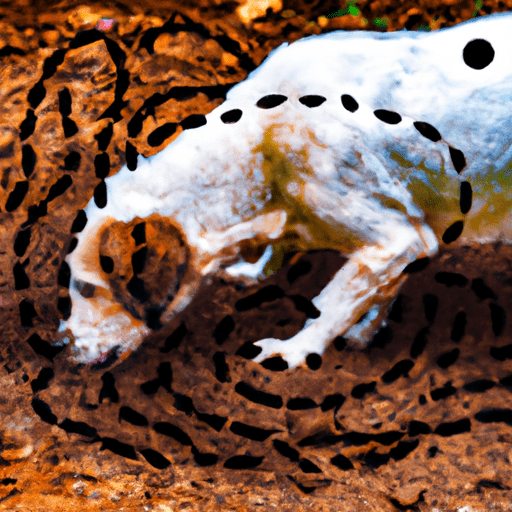Understanding Hookworms
Hookworms are small, thin parasites that attach themselves to the walls of a dog’s small intestine. They feed on blood, leading to internal blood loss. This can be particularly harmful for puppies and older dogs, whose immune systems may not be strong enough to fight off the infestation.
If you’re a caregiver for a dog, it’s crucial to understand the risks and symptoms associated with hookworms.
The Causes of Hookworms
Hookworms are usually acquired in one of four ways:
- Skin Contact: Dogs can contract hookworms by coming into contact with infected soil. The larvae can penetrate the skin and migrate to the intestine to mature.
- Oral Ingestion: Dogs can accidentally swallow hookworm larvae, usually by licking contaminated fur or paws.
- Mother to Pup: Pregnant dogs can pass the hookworms to their puppies during pregnancy or through nursing.
- Ingestion of Host: Dogs can also get hookworms by eating an infected host, like a rodent.
Symptoms of Hookworms
Hookworms are silent invaders. They sneak into your canine companion’s body and wreak havoc before you even realize what’s happening. It’s critical to be vigilant about any changes in your dog’s behavior or physical condition. Here are some of the symptoms to watch out for:
- Anemia
- Weight loss
- Diarrhea
- Dull coat
- Blood in the stool
- Loss of appetite
Prevention and Treatment of Hookworms
Preventing hookworms is always better than treating them. As a caregiver, you can take several steps to protect your dog:
- Regular Vet Check-ups: Regular vet visits are important for early detection and treatment.
- Clean Environment: Keep your dog’s environment clean. Pick up feces promptly, and prevent your dog from eating rodents.
- Medication: Regular deworming, as advised by your vet, can prevent hookworms.
If your dog is infested, treatment will likely involve an oral medication to kill the hookworms. Your vet may also prescribe iron supplements if your dog is anemic.
Common Misconceptions About Hookworms
There are several misconceptions about hookworms that can put dogs at risk. Here’s a table to help clarify some of them:
| Misconception | Truth |
|---|---|
| Only puppies get hookworms | Hookworms can infest dogs of any age |
| Indoor dogs are safe from hookworms | Dogs can contract hookworms from infected soil, rodents, or contaminated objects |
| Hookworms are not dangerous | Untreated hookworms can cause serious health problems, including death |
FAQ’s
Q: Can humans get hookworms from dogs?
A: Yes, though it’s rare, humans can contract hookworms, usually through skin contact with infected soil.
Q: How long does it take for a dog to show symptoms of hookworms?
A: Symptoms usually appear 2-3 weeks after infection.
Q: Can hookworms be prevented?
A: Yes, regular vet checkups, a clean environment, and routine deworming can help prevent hookworms.
Q: What should I do if I suspect my dog has hookworms?
A: Contact your vet immediately. They can perform a fecal test to confirm the presence of hookworms and provide appropriate treatment.
Remember, your dog’s health is in your hands. Stay informed, stay vigilant, and ensure your furry friend leads a happy, healthy life.



